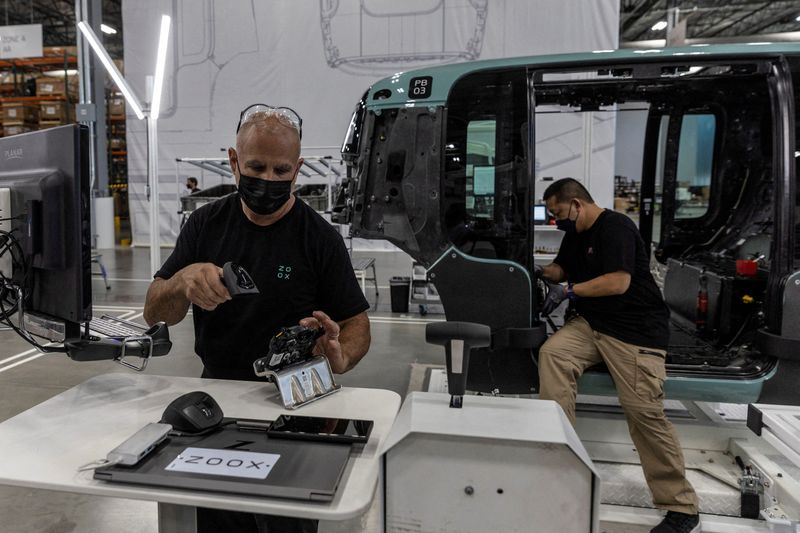By David Shepardson
(Reuters) - A group representing self-driving car companies is appointing a former U.S. Senate aide as its new head as the industry works to convince U.S. policymakers to speed the deployment of autonomous vehicles and jumpstart stalled legislation.
The Autonomous Vehicle Industry Association (AVIA) has tapped Jeff Farrah as its first executive director, the group told Reuters.
U.S. lawmakers have been divided for years over how to amend current auto safety regulations to encompass self-driving cars, including the scope of consumer and legal protections.
In 2017, the House of Representatives passed legislation to speed the adoption of self-driving cars and bar states from setting performance standards, but the bill never passed the U.S. Senate.
U.S. traffic deaths jumped 10.5% in 2021 to 42,915, marking the highest number killed on American roads in a single-year since 2005.
In an interview, Farrah said it was critical to advance policies to support autonomous vehicles, citing the huge increase in U.S. traffic deaths and wide benefits of self-driving cars to help boost mobility, reduce stress on U.S. supply chains as well as cut vehicle emissions.
"We don't want people to ultimately become desensitized to this," Farrah said. "It doesn't have to be this way at all. This is something where technology should be doing more."
The group notes computer-driven cars "are never drunk, distracted or drowsy – driver conditions that cause thousands of crashes."
AVIA members includes Argo AI -- backed by Ford Motor (NYSE:F) Co and Volkswagen AG (OTC:VWAGY) -- Aurora, General Motors (NYSE:GM) Cruise unit, Ford, Lyft (NASDAQ:LYFT), TuSimple, Uber (NYSE:UBER), Volvo Cars, Alphabet (NASDAQ:GOOGL)'s Waymo and Zoox, a unit of Amazon.com (NASDAQ:AMZN).
In August, U.S. House members launched a bipartisan effort to help revive stalled legislative efforts to boost self-driving vehicles.
"We need legislation that really promotes American global competitiveness," Farrah said.
In July, the National Highway Traffic Safety Administration said GM's Cruise and Ford sought exemptions to deploy up to 2,500 self-driving vehicles annually without human controls. Those petitions are still pending.

A group representing lawyers has said it opposes "any legislation that exempts the driverless car industry from basic safety standards."
The Transportation Trades Department for the AFL-CIO, told U.S. lawmakers in 2021 that autonomous vehicles place "millions of jobs at risk" and any self-driving legislation should not apply to commercial trucks.